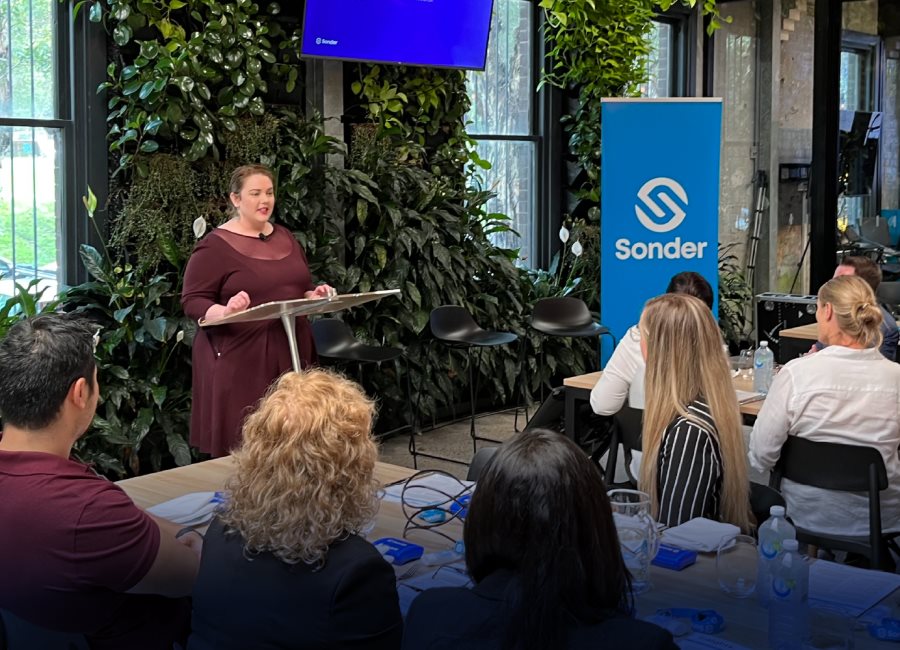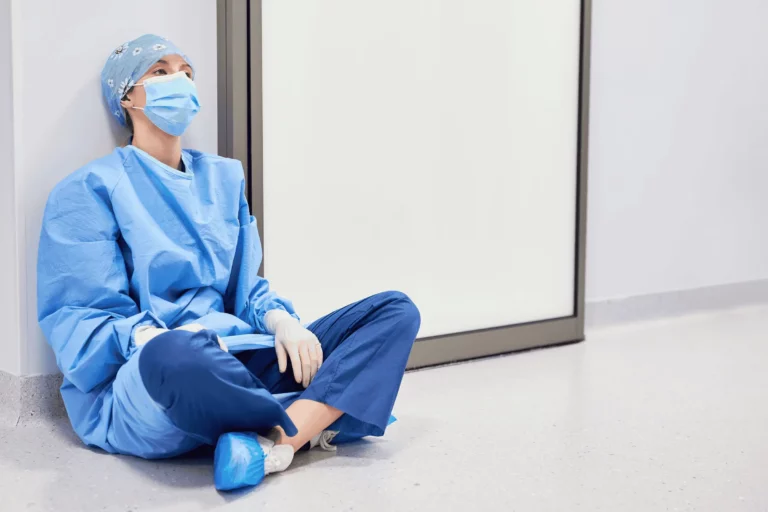Since the start of the pandemic, some retailers have seen instances of aggression from customers increase by up to 400 per cent. With this in mind, Sonder recently brought together business leaders from consumer-facing sectors to discuss the impact that customer hostility is having on their teams, policies and programs, as well as how they can work towards providing a safer, happier experience on the front line.
We were delighted to welcome to Sonder HQ in Sydney:
Keynote speaker:
Rebecca Goulter (Director of Marketing and Events, National Retail Association)
Health and wellbeing panel:
Dr Jamie Phillips (Medical Director, Sonder)
Kim Powell (Director of Nursing, Sonder)
Louise Butler (Head of Psychological Services, Sonder)
Retail and hospitality panel:
Nicole Everingham (General Manager, Workplace Health and Safety, HOYTS Group)
Phil Rice (Work Health and Safety Manager, AU and NZ, TFE Hotels)
Craig Cowdrey (Co-founder and CEO, Sonder)
We are here because we all have a desire to do better… do more. For our people, for our businesses, and for our communities.
Craig Cowdrey, CEO, Sonder
Sonder statistics
Craig Cowdrey opened the event by citing research from Sonder’s recent survey of 1,025 employees in Australia:
- Nearly 70 per cent of employees in retail-related industries have experienced aggression from customers (versus 62 per cent across all industries);
Almost half of these employees stated they did not receive any support after the incident; - Over a third of the employees in the retail and wholesale trade sector have taken time off work due to concerns about their mental wellbeing; and
- 86 per cent of employees have taken on extra work duties as a result of colleagues taking time off work due to mental wellbeing concerns;
- This is 10 per cent higher than the full cohort result from 1,025 employees across all industries.
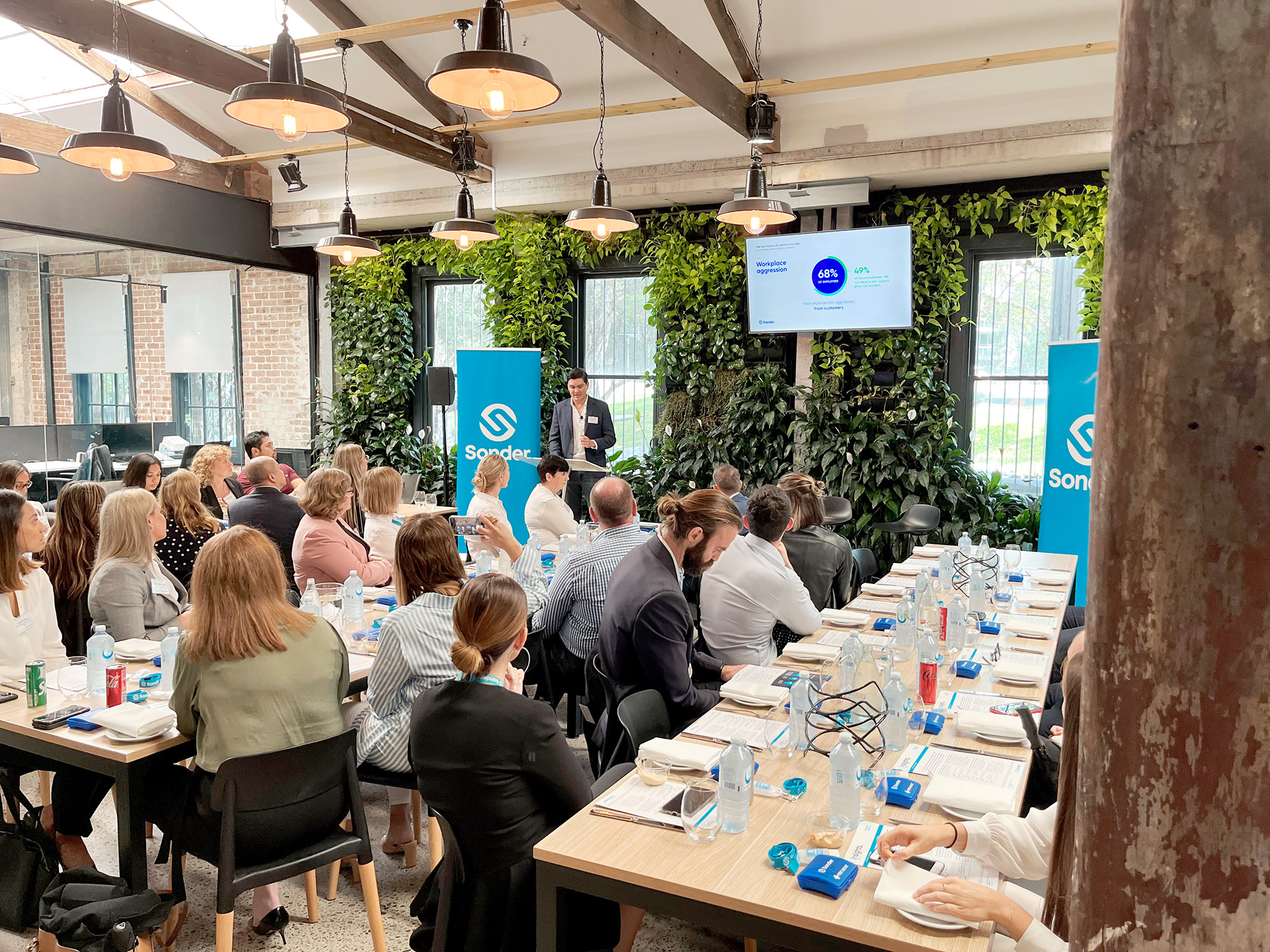
Keynote from the National Retail Association (NRA)
Rebecca Goulter’s keynote passionately described how:
- NRA member polling showed that customer aggression increased by up to 400 per cent throughout the pandemic – attributed predominantly to the requirement to enforce health directives;
- Shoplifting and crime also increased 62 per cent last year, with 19.3 per cent of reported incidents also displaying threatening behaviour;
- During the height of the pandemic, many employers were working with fewer people per shift, which meant that employees often received less support when confronted by an aggressive customer onsite;
- A Shop, Distributive and Allied Employees’ Association (SDA) study compiled pre-pandemic shows this isn’t a new issue – 85 per cent of retail workers reported verbal abuse in a 12-month period, 14.5 per cent reported physical violence, and 12 per cent said customer abuse or violence was sexual in nature;
Two out of three retail and hospitality workers have a mental health condition, the second-highest proportion of any other industry.
“We know retailers often don’t call the police due to slow response time and employees are often instructed not to endanger themselves.”
Rebecca Goulter, Director of Marketing and Events, National Retail Association
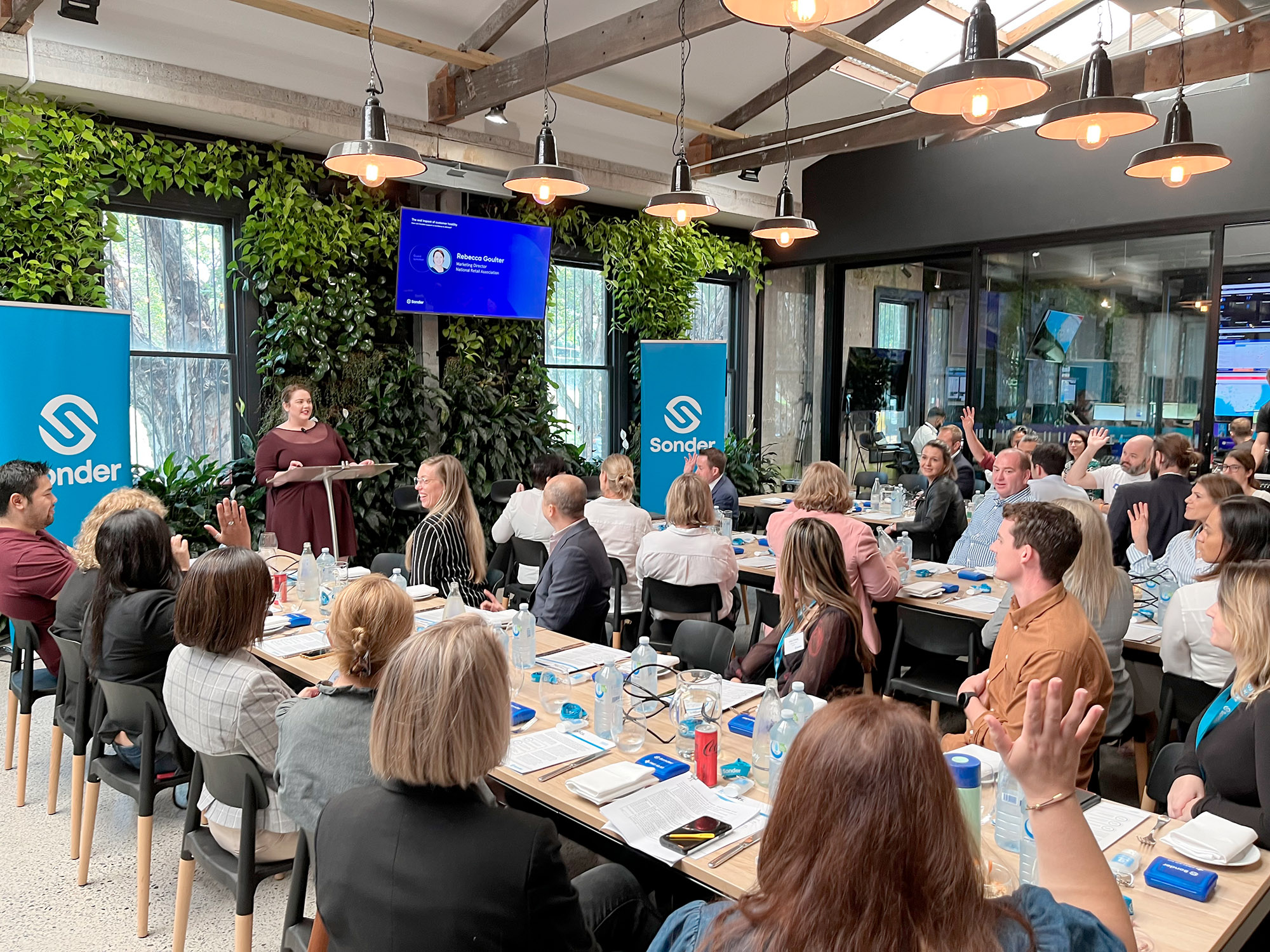
The NRA is seeking to inspire positive change. Goulter recommends:
- Organisations need to enact a culture change for mental health conversations to be normalised in the workplace from the top down.
- With two in every three people struggling with a condition of some kind, and only up to five per cent of employees taking advantage of EAPs, there is a large group struggling but left unserviced.
- Employers need to better communicate the support available.
- We need to train managers better – bad bosses can sometimes be the cause of mental health issues. The retail and hospitality sector often promotes people from individual roles for their on-the-job success, but leadership requires a different skill set.
“Industry-wide, we need to challenge the notion that the customer is always right. At a certain point, a customer stops being a customer and starts becoming a risk.”
Rebecca Goulter, Director of Marketing and Events, National Retail Association
Sonder’s medical panel
The first panel session of the day provided a medical perspective, hosted by the leaders of Sonder’s health team; Dr Jamie Phillips, Kim Powell and Louise Butler. They offered the following insights from their experience in working with our members and partners:
- Organisations attempting to fulfill their care obligations with a poster in a common area aren’t doing enough;
- Managers were never intended to be mental health experts – but they are now expected to be able to support people as the first point of contact. This creates a huge burden and in turn, may impact their performance;
- Changing the narrative around help-seeking needs to start with leadership – being vulnerable and talking about wellbeing is an important skill that needs to be encouraged;
- Mental health can’t be applied to solve all issues. A holistic approach is necessary; and
- Sonder’s approach addresses the immediate issue – without ignoring the additional factors.
- If it matters to a member, it matters to Sonder.
“Nobody gets up in the morning and decides they’ll be aggressive. There are a string of events that have happened to get them to that point.”
Kim Powell, Director of Nursing, Sonder
The Sonder health team also talked about the important relationship they hold with stakeholders across our range of partners – this is crucial to maintain an open loop of feedback that encourages all parties to constantly strive to do better for their people.
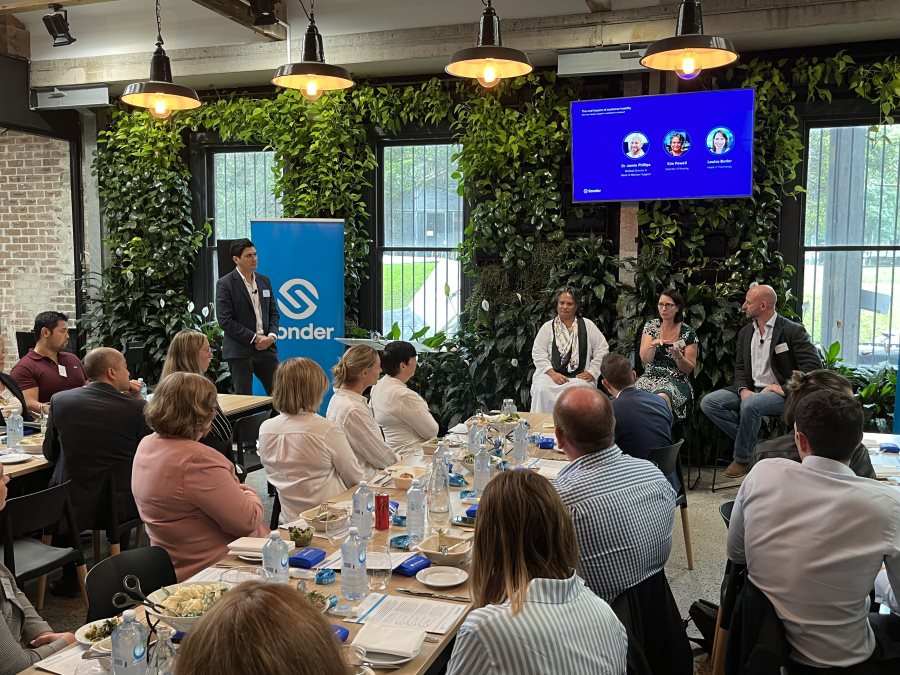
Spotlight on the hospitality and entertainment industries
The second panel discussion, hosted by Cowdrey, pointed a spotlight on the hospitality and entertainment industries. Having both been HR and safety leaders in their industries for many years, Nicole Everingham and Phil Rice advocated that their people are the lifeline of their businesses.
Their discussion included:
- The impact that hospitality and entertainment employees delivering messages about new COVID-19 restrictions or changes, which has put them at immediate risk from customers who were unaware of the updates;
- Young people have had to deal with customers who are angry and frustrated, and experiencing this sort of aggression in your first job can have a series of knock-on effects if appropriate support and coaching are not available;
- When a team member faces aggression, the company needs to advocate for them, rather than side with the customer. This is contrary to a lot of management training which suggests that “the customer is always right”; and
- 24/7 support is essential. 9-5 support is missing more than half of the opportunities to assist when it may be needed.
“If someone is struggling at one o’clock in the morning, who do they turn to?”
Nicole Everingham, General Manager, Workplace Health and Safety, HOYTS Group
This event highlighted that the ripple effect of customer hostility is real, tangible and measurable. The numbers do not lie and the cost to our frontline workers will be long-lasting.
As our world moves on, and we transition to a “new normal”, we hope the prevalence of hostility reduces, especially for our younger workers. In the meantime, there is more to be done to better support our workers and give them the tools and resilience to live their lives with confidence.
“When things do go wrong, the physical and psychological impact on your people is not only a business cost but also a moral obligation. Health and wellbeing can no longer remain a box-ticking exercise – it is an integral part of business strategy.”
Craig Cowdrey, CEO, Sonder
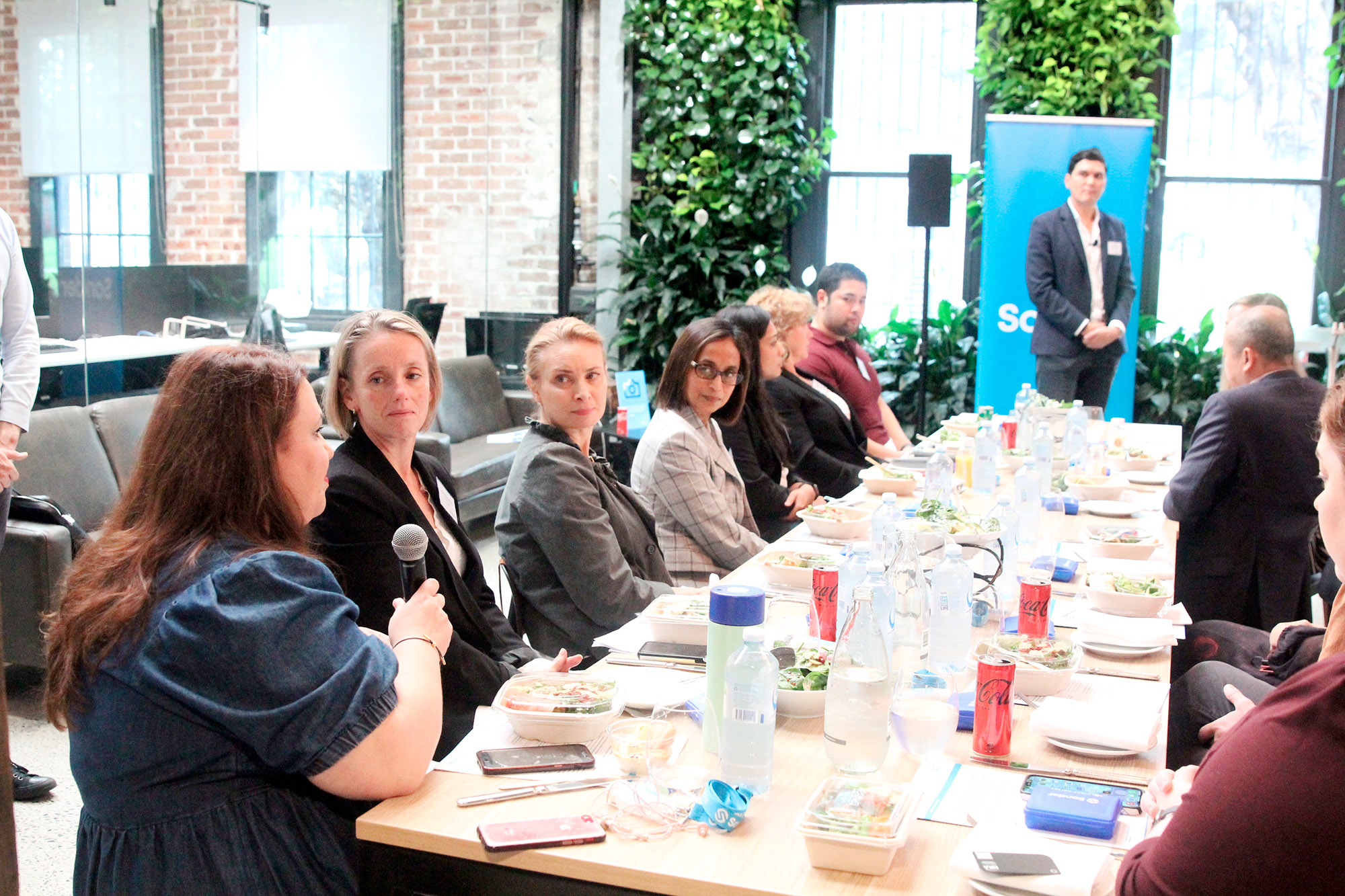
About Sonder
Sonder is a technology company that helps organisations improve the wellbeing of their people so they perform at their best. Our mobile app provides immediate, 24/7 support from a team of safety, medical, and mental health professionals – plus onsite help for time-sensitive scenarios. Accredited by the Australian Council on Healthcare Standards (ACHS), our platform gives leaders the insights they need to act on tomorrow’s wellbeing challenges today.
